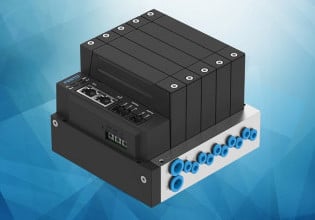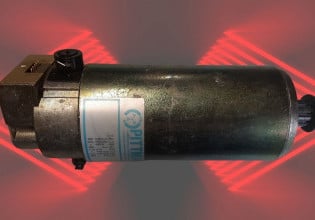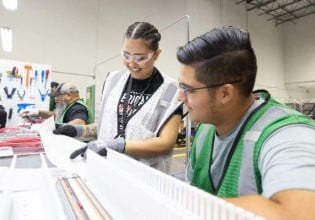M
Someone brought the following links to my attention. We have discussed this general subject before (patents in our industry), and I thought some people would be interested in the news.
The first is with regards to a lawsuit in the US where Cognex was suing a company known as "the Lemelson Partnership", which apparently had controlling American patents on bar code readers and vision systems (which they claimed to have invented back in 1954). Cognex has just managed to get the patents thrown out. Apparently, Lemelson has used these patents to extract $1.5 billion from various companies since the early 1990s. While I suspect that most people were blissfully unaware of the situation, no doubt there are some who will feel cause to celebrate.
http://www.cognex.com/news/press_releases/2004/Cognex_Lemelson.asp
http://www.cognex.com/pdf/corporate/Lemelson_decision.pdf
The PDF file contains the court decision. I didn't read all of it, but I did glance at some bits of it, and the following caught my eye (from page 9):
"Through the testimony of Arthur Steiner, an attorney who previously worked as a Patent Examiner... Steiner's testimony could be read as a strong indictment of the U.S. Patent Office in which Patent Examiners are limited to approximately 19 hours per patent review and when confronted with applications as complicated as those involved in the Lemelson patents, are put in a position of falsely representing that they had reviewed materials when in fact they had not."
I think the above quote from the court decision perhaps sums up what a lot of people have long suspected. The above was not a factor in the court's decision, but it was the result of some of the testimony presented.
On a contrary note, Opto-22 was being sued by Schneider for using a web browser with a PLC. Opto-22 has recently decided to settle rather than continuing to fight. See their press statement at:
http://www.opto22.com/company/pressroom/index.aspx
Opto-22 had something rather interesting to say (the following is quoted from their presss release):
"Fear of litigation is stifling innovation as more and more companies decide to compete in the courtroom and not the marketplace. Attorneys and consultants are encouraging their clients to set up intellectual property departments with the idea of making money not through earnest endeavors to produce and offer quality goods and services, but through continuous litigation and intimidation. The lack of resources and expertise at the United States Patent Office is only adding fuel to this fire by awarding patents that should never have been issued in the first place."
I don't have any particular insights to add to the above, but I thought these would interest a few people.
--
************************
Michael Griffin
London, Ont. Canada
************************
The first is with regards to a lawsuit in the US where Cognex was suing a company known as "the Lemelson Partnership", which apparently had controlling American patents on bar code readers and vision systems (which they claimed to have invented back in 1954). Cognex has just managed to get the patents thrown out. Apparently, Lemelson has used these patents to extract $1.5 billion from various companies since the early 1990s. While I suspect that most people were blissfully unaware of the situation, no doubt there are some who will feel cause to celebrate.
http://www.cognex.com/news/press_releases/2004/Cognex_Lemelson.asp
http://www.cognex.com/pdf/corporate/Lemelson_decision.pdf
The PDF file contains the court decision. I didn't read all of it, but I did glance at some bits of it, and the following caught my eye (from page 9):
"Through the testimony of Arthur Steiner, an attorney who previously worked as a Patent Examiner... Steiner's testimony could be read as a strong indictment of the U.S. Patent Office in which Patent Examiners are limited to approximately 19 hours per patent review and when confronted with applications as complicated as those involved in the Lemelson patents, are put in a position of falsely representing that they had reviewed materials when in fact they had not."
I think the above quote from the court decision perhaps sums up what a lot of people have long suspected. The above was not a factor in the court's decision, but it was the result of some of the testimony presented.
On a contrary note, Opto-22 was being sued by Schneider for using a web browser with a PLC. Opto-22 has recently decided to settle rather than continuing to fight. See their press statement at:
http://www.opto22.com/company/pressroom/index.aspx
Opto-22 had something rather interesting to say (the following is quoted from their presss release):
"Fear of litigation is stifling innovation as more and more companies decide to compete in the courtroom and not the marketplace. Attorneys and consultants are encouraging their clients to set up intellectual property departments with the idea of making money not through earnest endeavors to produce and offer quality goods and services, but through continuous litigation and intimidation. The lack of resources and expertise at the United States Patent Office is only adding fuel to this fire by awarding patents that should never have been issued in the first place."
I don't have any particular insights to add to the above, but I thought these would interest a few people.
--
************************
Michael Griffin
London, Ont. Canada
************************






